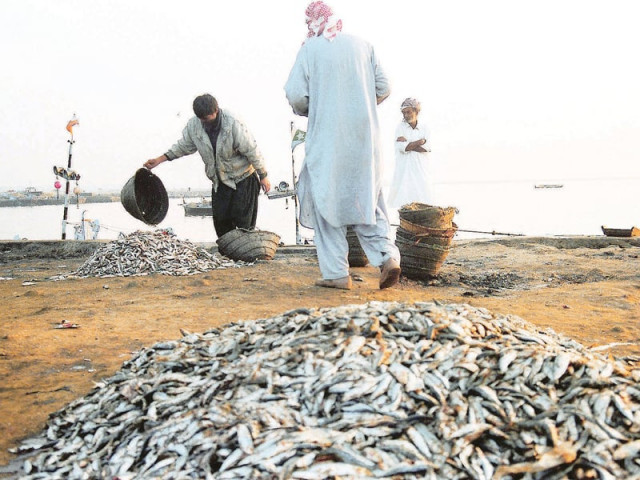Business
Gold, Silver Prices Ease On MCX Amid Profit Booking At Record Highs

Mumbai: Gold and silver prices fell in early trade on Thursday, on the Multi Commodity Exchange (MCX), as investors booked profits after both metals hit record highs in the previous session.
At around 9:15 am, MCX Gold December futures were down 0.34 per cent at Rs 1,22,789 per 10 grams, while MCX Silver December futures slipped 0.75 per cent to Rs 1,48,738 per kg.
In Wednesday’s session, gold futures for December delivery had touched an all-time high of Rs 1,23,450 per 10 grams, and silver had hit a fresh peak of Rs 1,50,282 per kg.
Gold prices have seen a sharp rally this year, with domestic spot prices jumping more than 50 per cent so far.
The surge has been driven by global political and economic uncertainties, expectations of interest rate cuts by the US Federal Reserve, a weaker US dollar, strong central bank buying, and robust inflows into gold exchange-traded funds (ETFs).
Experts believe that despite some short-term volatility and profit booking, gold prices will continue to rise in the coming months.
They expect gold to surpass Rs 1,25,000 per 10 grams by the end of 2025, supported by rate cut hopes and concerns related to US trade tariffs.
“By year-end, gold on the MCX could move towards Rs 1,25,000–Rs 1,28,000 per 10 grams, while silver could test Rs 1,55,000–Rs 1,60,000 per kg, assuming the US Federal Reserve delivers one or two rate cuts and the dollar remains under pressure,” market experts added.
“Gold broke above $4,000 per ounce — up 53 per cent year-over-year — as investors sought safe havens amid the government shutdown and policy uncertainty,” analysts added.
The Dollar Index rallied to 98.90 due to political instability in France and Japan, which pressured commodities.
Oil fell 0.67 per cent to $62.13 per barrel as Trump announced progress on the ceasefire and inventories exceeded expectations, easing geopolitical risk premiums, as per the experts.
Business
Budget 2026: Punjab, Telangana flag higher fiscal burden under VB-G RAM G; seek more central funds – The Times of India

Opposition-ruled states Punjab and Telangana on Saturday sought additional fiscal support from the Centre in the Union Budget 2026-27, arguing that the proposed Viksit Bharat Guarantee for Rozgar and Ajeevika Mission (Gramin) (VB-G RAM G) will place a heavier financial burden on states due to its revised cost-sharing formula, PTI reported.The demands were raised at the pre-Budget meeting chaired by Union Finance Minister Nirmala Sitharaman, which was attended by finance ministers of states and Union Territories, along with Union Minister of State for Finance Pankaj Chaudhary. The meeting also saw participation from the Governor of Manipur, chief ministers of Delhi, Goa, Haryana, Jammu and Kashmir, Meghalaya and Sikkim, and deputy chief ministers of several states, including Telangana.Opposition-ruled states said the changes to the rural employment framework weaken the employment guarantee and go against the spirit of cooperative federalism.Parliament last month passed the VB-G RAM G Bill, replacing the two-decade-old Mahatma Gandhi National Rural Employment Guarantee Act (MGNREGA). Under the new scheme, the Centre will bear 60 per cent of the cost and states 40 per cent, compared with the 90:10 funding pattern under MGNREGA.Punjab Finance Minister Harpal Singh Cheema strongly opposed the proposed changes, saying the new framework dilutes the employment guarantee while shifting a significant financial burden to states.“Proposed MGNREGA changes weaken employment guarantee and burden states,” Cheema said at the meeting, calling for the restoration of the original demand-driven structure and funding pattern of the scheme.Telangana Finance Minister Mallu Bhatti Vikramarka said the Union government had replaced MGNREGA with VB-G RAM G without consulting states. He noted that the shift from a 90:10 to 60:40 funding ratio would further strain state finances.He also pointed out that any additional man-days beyond the normative allocation would now have to be borne by states, which would create a serious obstacle in providing demand-based work to job seekers.“This is entirely against the spirit of cooperative federalism and starving them of funds for capital outlay, which is essential for maintaining growth momentum,” Vikramarka said.The Telangana finance minister also suggested that surcharges on income tax and corporation tax be credited to a non-lapsable infrastructure fund, from which states could receive grants for infrastructure development. Alternatively, he said, surcharges should be merged with basic tax rates to expand the divisible pool of central taxes.On GST reforms, Vikramarka said GST 2.0 may boost demand but questioned its sustainability, warning that states’ revenues could fall due to rate reductions. He called for a suitable mechanism to compensate states for any revenue loss.Punjab also sought a special fiscal package, citing the “double whammy” of border tensions and floods in 2025. On GST, Cheema said Punjab is facing an annual revenue loss of nearly Rs 6,000 crore following GST 2.0 and pressed for a predictable GST stabilisation or compensation mechanism for states.
Business
CY26 buying, macros propel PSX further higher | The Express Tribune

Shares of 324 companies were traded. At the end of the day, 90 stocks closed higher, 211 declined and 23 remained unchanged. PHOTO: FILE
KARACHI:
Pakistan’s equity market opened the new year on a strong footing as the benchmark KSE-100 index extended its bullish momentum in the second week, climbing 5,375 points, or 3% week-on-week (WoW), to close at 184,410.
The rally was triggered by renewed buying in heavyweight stocks amid improved market participation, supportive macroeconomic indicators, and positive company-specific developments, while easing yields in the latest T-bill auction and robust remittances further strengthened investor sentiment. On a day-on-day basis, the bullish momentum at the Pakistan Stock Exchange (PSX) continued unabated on Monday as the KSE-100 index surged past 182k, closing at 182,408, up 3,373 points (+1.88%).
On Tuesday too, the market’s surge continued, when the index gained 2,654 points (+1.45%) to close at 185,602. The powerful and sustained bullish trend remained intact on Wednesday as well, with the bourse maintaining its full strength and closing at a fresh all-time high of 186,518. In the initial five sessions of CY26, the index added a massive 12,464 points (+7.2%).
However, following the sharp rally, the PSX witnessed its first profit-taking session on Thursday, where the index closed at 185,543, down 976 points (-0.52%). On Friday, the PSX took a breather and the KSE-100 remained volatile, swinging in both directions before closing at 184,410, down 1,133 points (-0.61%). Despite the decline, the CY26-to-date gains stood strong at 5.95%, equivalent to a rise of 10,356 points.
Arif Habib Limited’s (AHL) weekly report noted that the KSE-100 index climbed from 179,035 points last week to 184,410 in the outgoing week, gaining 5,375 points (+3%), supported by a rally in heavyweight stocks driven by new year buying, and positive company-specific news and updates.
Among economic developments, the government through a T-bill auction raised Rs979.3 billion against the target of Rs850 billion. Yields were down across all tenors by 28.6 to 33.8 basis points. Participation remained strong at Rs2,554.6 billion.
Worker remittances reached $3.6 billion in Dec’25, marking a 17% year-on-year (YoY) increase. Cumulatively, 1HFY26 remittances clocked in at $19.7 billion, up 11% YoY.
AHL mentioned that tariff rebasing, following shift from financial year to calendar year, was likely to pull the power purchase price down by Rs0.51 per kilowatt-hour (kWh) in CY26 versus FY26. Cotton arrivals in factories remained stable as of end-Dec’25. In Punjab, cotton arrivals declined 4% in CY25, while Sindh arrivals improved by 4% YoY. However, total production are estimated at 6.8 million bales in FY26, representing a significant 33% shortfall against projections.
Meanwhile, the central government debt stood at Rs77.5 trillion as of Nov’25 compared with Rs70.4 trillion in Nov’24, up 10.2% YoY and 0.7% month-on-month, AHL added.
JS Global’s Syed Danyal Hussain, in his report, said that the benchmark KSE-100 index extended its bullish run in the second week of the year, closing at 184,410, up 3% WoW. The rally was largely led by banks, which contributed 57% to index gains, while cement stocks (8%) and auto shares (5%) provided limited support. Market participation improved notably, with average daily traded volumes rising 25% WoW.
On the macro front, he said, Pakistan recorded monthly remittances of $3.6 billion in Dec’25, reflecting a 17% YoY increase. Meanwhile, total public debt declined by Rs345 billion to Rs77.5 trillion in 5MFY26, largely supported by the transfer of State Bank’s profits to the government.
In policy developments, the government was exploring options to seek relaxations from the IMF ahead of the FY27 budget, with key proposals including a phased reduction in super tax over the next four years and lower power tariffs to enhance competitiveness.
Separately, the gas-sector circular debt climbed to Rs3.2 trillion, driven mainly by a sharp rise in late payment surcharges (Rs1.45 trillion). In the T-bill auction, the government raised Rs979 billion against the target of Rs850 billion, with yields falling by 29-33 basis points across different tenors. SBP’s reserves rose $141 million to $16 billion.
Business
Modern seafood processing zone planned at Korangi harbour | The Express Tribune

ISLAMABAD:
Federal Minister for Maritime Affairs Muhammad Junaid Anwar Chaudhry has announced plans to establish a 100-acre, $80 million Seafood Processing and Export Zone at the Korangi Fisheries Harbour Authority (KoFHA), aimed at boosting the blue economy and global seafood trade.
In a statement on Saturday, the minister said the proposed project was aimed at developing, financing and operating a modern seafood processing and value addition complex under KoFHA, positioning the harbour as a regional hub for sustainable, technology-driven seafood processing linked to high-value international markets.
He said the initiative would be a bridge between medium-scale seafood processors and value-added plants, and global buyers by providing modern infrastructure, certification standards and efficient export logistics. The project reflects the government’s intent to move away from raw seafood exports towards higher-value processed products.
The minister noted that the project would cover 100 acres of dedicated seafood processing and export infrastructure at the Korangi Fisheries Harbour in Karachi. He said the estimated project cost would range between $60 million and $80 million, based on regional and global benchmarks from countries such as Vietnam, China and Ecuador, which have developed similar seafood parks.
He said the planned facilities would include multi-tenant seafood processing units, large-scale cold storage and packaging facilities, logistics and export terminals and a wastewater treatment plant to ensure environmentally compliant operations. The zone will be used exclusively for commercial seafood processing, packaging, cold storage and export-oriented activities.
The maritime minister said the project was proposed under a public-private partnership or build-operate-transfer (BOT) concession model, under which private investors would develop, operate and maintain the processing zone, while KoFHA would keep regulatory oversight and provide facilitation.
Elaborating on the development components, he said the zone would host between 20 and 25 medium to large-scale seafood processing units designed for fish and shrimp processing, value addition and export-grade packaging. The units will support a wide range of products from primary processing to ready-for-market seafood items.
He said the project would include a cold storage and blast freezing complex with multi-temperature storage ranging from minus 18 to minus 40 degrees Celsius, allowing safe handling of fresh, processed and unprocessed seafood. Ice plants and flake ice stations with a daily capacity of 50 to 100 tons will support fish landing, processing and transportation needs.
The minister said dedicated value addition and ready-to-eat units would be established for filleting, marinated products, breaded seafood and export-oriented convenience foods, enabling Pakistani exporters to tap premium retail and food service markets abroad.
-

 Sports6 days ago
Sports6 days agoVAR review: Why was Wirtz onside in Premier League, offside in Europe?
-

 Entertainment3 days ago
Entertainment3 days agoDoes new US food pyramid put too much steak on your plate?
-

 Politics3 days ago
Politics3 days agoUK says provided assistance in US-led tanker seizure
-

 Entertainment3 days ago
Entertainment3 days agoWhy did Nick Reiner’s lawyer Alan Jackson withdraw from case?
-

 Politics6 days ago
Politics6 days agoChina’s birth-rate push sputters as couples stay child-free
-

 Sports6 days ago
Sports6 days agoSteelers escape Ravens’ late push, win AFC North title
-

 Entertainment6 days ago
Entertainment6 days agoMinnesota Governor Tim Walz to drop out of 2026 race, official confirmation expected soon
-

 Sports6 days ago
Sports6 days agoFACI invites applications for 2026 chess development project | The Express Tribune












